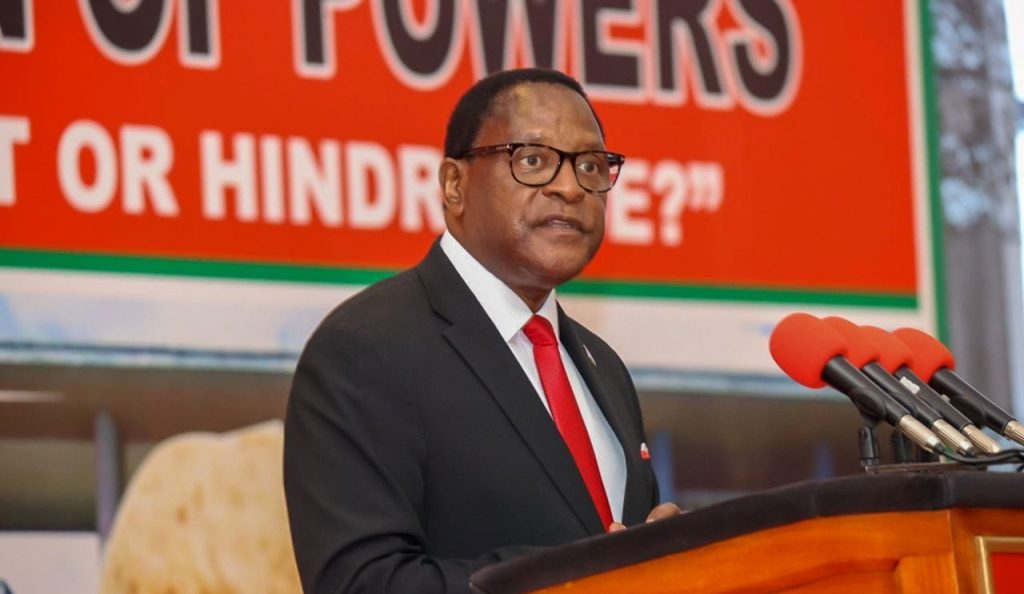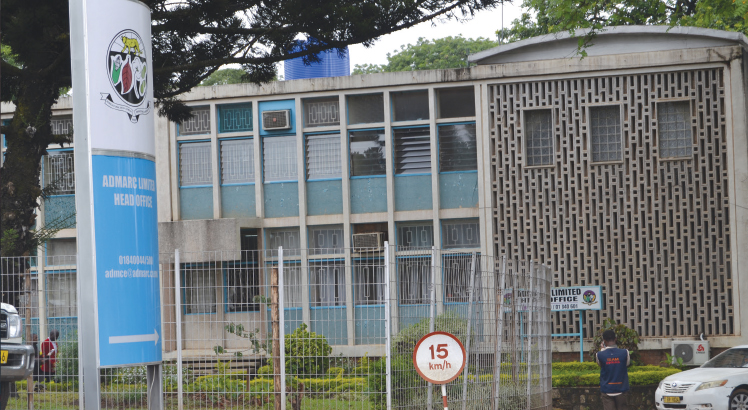President Lazarus Chakwera, Chief Justice Rizine Mzikamanda and Speaker of the National Assembly Catherine Gotani Hara have all agreed that a well-functioning doctrine of separation of powers is key to the success of the country’s development plan as espoused in the Malawi 2063 Agenda.
Speaking during the first-ever National Conference of Separation of Powers in Lilongwe on Monday, the heads of the three arms of government, namely the Executive, Legislature and Judiciary underscored the need to safeguard the doctrine of separation of powers by ensuring that those entrusted with power are more accountable to Malawians.
Chakwera: All State power is borrowed from Malawians
But experts have punched holes in the country’s operationalisation of the doctrine of separation of powers, describing the appointing of legislators as ministers and the drafting of Judges and other officials into the Executive branch as a serious impediment, among other challenges.
In his remarks during the conference, Chakwera said all State power is borrowed from Malawians on trust and, therefore, everyone who has State power must be held accountable for how they use it.
He said some Malawians have distorted the job of a President, likening it to a driver behind a wheel but he faulted such reasoning, saying his job is closer to that of a traffic officer who controls the flow of traffic but has no control over the vehicles on the road.
Chakwera (M) with Mzikamanda (L) and Gotani Hara
Said the President: “We will continue to mistakenly blame the President, the Chief Justice, or the Speaker for the failures of other constitutional bodies that have powers these offices do not, and we will continue to have constitutional bodies that are not held accountable for failing to fulfil their mandates and use their powers as given them by the Constitution.”
Taking his turn, Mzikamanda stressed that true separation of powers can be fully exercised where there is constitutional supremacy.
He said: “It must, therefore, be accepted that in modern constitutional systems, there is a great variety of arrangements with the resultant effect that in some cases the doctrine of separation of powers may lose its rigidity and dogmatic purity.”
The Chief Justice stressed that it is of paramount importance that there should always be a government according to law and not the wish of an individual or some few people.
“The three arms of government operate in service to the people of Malawi, while they maintain their separate status and independence, it is important that their work is synchronised and properly coordinated within the set rules for the benefit of the people,” he said.
On her part, Gotani Hara pointed out that the Legislature considers separation of powers as a catalyst to development, adding that in a functioning democracy, they are separate but yet interlinked and properly discharging their functions without undue interference, thereby benefiting the nation.
She cited the Constitutional (Amendment) Act of 2021, which gave Parliament more control over its affairs by, among others, providing for the laying before the Assembly, a calendar of the meetings of Parliament at the beginning of each Session as one of the developments in achieving separation of powers.
Said Hara: “As branches of government, we need to be frequently engaging in these uncomfortable but very necessary conversations.”
She said the conference is, therefore, an opportunity to take a collectively assess the issues relating to the practical application of the principle of separation of powers as a cornerstone of a vibrant and robust democratic dispensation.
Meanwhile, Justin Dzonzi, who is executive director of Justice Link, has observed that the country needs to do away with some elements if the spirit of separation of powers is to thrive.
In an interview on Monday, he cited the appointing of members of Parliament (MPs) as ministers, saying it may lead to under-representation as the MP sacrifices his constituency by focusing on Cabinet business.
Dzonsi further said the appointment of judges into the Executive without first resigning is also an impediment to the doctrine of separation of powers.
The two-day conference, expected to wind up today, has convened local and international delegates who will participate in moderated panel discussions to interrogate various issues related to the concept of separation of powers as outlined in the Malawi Constitution.
The post Chakwera vows to defend constitution first appeared on The Nation Online.
 Moni Malawi
Moni Malawi 

